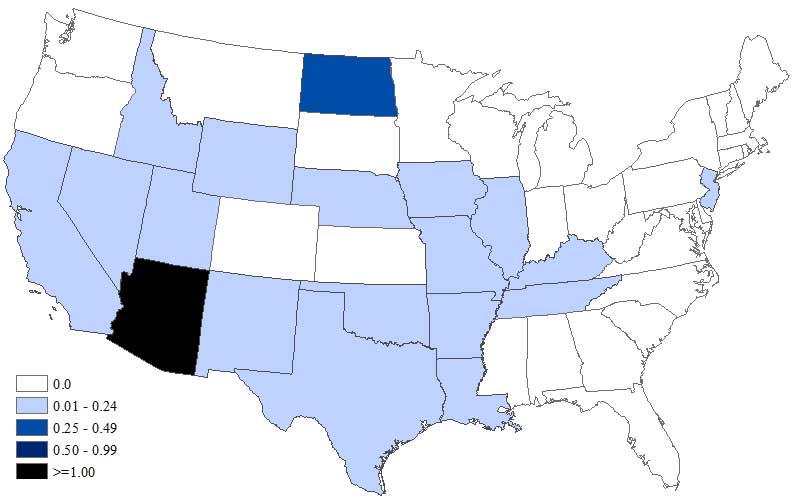Jun 22, 2005, 6:09 PM
By Frances Kuo
(LOUISVILLE) -- The hot, muggy weather we're having means more mosquitos and the risk of the West Nile virus. The disease has already struck Kansas, where health officials have confirmed the first human case of the disease this year. WAVE 3's Frances Kuo investigates our local plan of attack and talks to a local man who survived a bout with the West Nile last year.
The West Nile case in Kansas has health officials in Louisville keeping an even closer eye on mosquito activity in our area.
For the past week, they've set up traps to help them answer some key questions. "What are the level of mosquitos in the community? What are the species so we can identify breeding sites and work harder to prevent mosquitos before they take flight?" said Judy Nielsen, Interim Deputy Director of the Metro Health Department.
Most people outdoors on a beautiful summer day probably never think about West Nile. One Louisville man had the same attitude until he became the city's first and only human case of the virus in 2004.
Watching 76-year-old Bob Bryant in his garden, it's clear he's in his element. Last summer, he says he was "out there every day, either pulling weeds or something."
But for six weeks last year, the garden had to do without Bryant's caring hand when he was bitten by a mosquito carrying the West Nile virus.
Bryant said the effects of the illness hit him without warning. "I didn't know even know when I left here and went to the hospital. It just knocked me out."
West Nile virus robbed him of his ability to think and move. "I was just real weak," he recalls, "didn't want to do nothing, had no ambition to do anything at all."
Now, almost a year later, there's still some paralysis in his left arm, and his left hand still shakes now and then. But the physical effects aren't the hardest to accept.
"It's kind of depressing not to do what you want to do," Bob says, "but I'm hoping I'll gradually get my strength back where I can do what I want to do."
Bryant's daughter, Lynn Forrest -- daddy's girl -- will never forget that day in the garden in September. "It was probably the most terrifying thing I've ever been through in my life, because I really and truly thought I was going to lose my dad."
Now that dad's back, he's slowly coming around. "You can see it in his face," Forrest says. "You can start seeing that the energy's coming back, his attitude's coming back. There's a smile on dad's face a little more than there used to be."
So now Bryant's garden and his daughter are patiently waiting for him to return to 100 percent. "I'll come in and say, 'well, how are you feeling, dad?' And he'll say, 'oh about half.' And I'll say 'I'm waiting for you to get to whole.'"
People like Bryant who are 50 years and older are especially vulnerable to West Nile, though no one is immune.
The health department has been setting up traps to pinpoint the number of mosquitos in the area and identify breeding sites. So far, about 20 mosquito pools have been tested, and all have turned up negative for West Nile.
Health officials urge the public to get rid of any standing water and use bug spray when outdoors. If you have concerns about mosquito activity in your area, you can call City Call at 311.
Online Reporter: Frances Kuo
Online Producer: Michael Dever


No comments:
Post a Comment